| Vintage Pulp | Feb 26 2024 |

He was a good husband at first. Then he turned into a total ape.
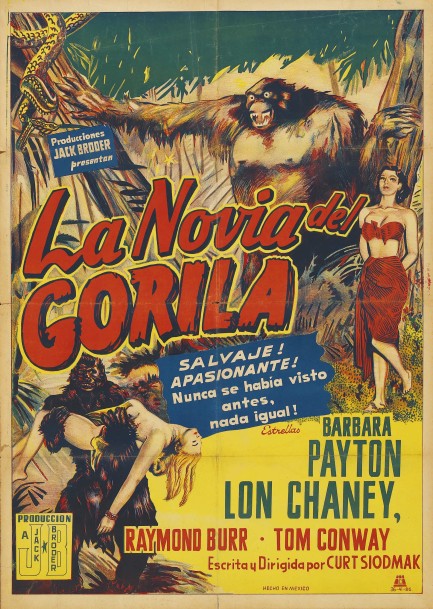
This Mexican poster for La novia del gorilla, aka Bride of the Gorilla, is chockful of interesting elements, from the massive simian at top, to the snake hanging in a tree, to star Barbara Payton being borne away by a second gorilla, and co-star Carol Varga in her classic “native” two-piece. There's a line early on: “White people shouldn't live too long in the jungle. It brings out their bad side—jealousies, impatience.” That sums up the thrust of the plot, the subplot, and the underlying themes, because it's a one-note psychological suspense flick about northerners out of place in the humid global south.
In brief, Raymond Burr runs a rubber plantation for colonial boss Paul Cavanaugh, and has the hots for his wife Barbara Payton. He kills Cavanaugh, thanks to a serendipitous lethal snake that's slithering by. He gets away with the murder, but he can't fool the withered old crone who runs the plantation house. She uses the pe de guine—the so-called plant of evil—to place a curse on Burr. It's slow to act, but by the time he marries the widowed Payton he comes to think he's changing into a beast. Is it in his mind? Is he suffering the effects of slow poisoning from the pe de guine? Or is he really a monster?
Bride of the Gorilla, while a middling and basically inconsequential cinematic effort, is well remembered by Hollywood buffs for its extracurriculars. Barbara Payton was being surveilled via detective by her husband Franchot Tone, and passed on the unfortunate news that Payton was enjoying sweaty horizontal interludes with Woody Strode. He was one of the best looking guys you can imagine, so it's no wonder the highly sexed Payton got hot and bothered. It was one in a series of affairs for her, but this one harmed her career because Strode was black. She would later suffer one of the more infamous downward spirals in celebrity history.
In any case, the question is should whether you give Bride of the Gorilla a screening. Hmm... well, owing to the good cast, we think so. Chaney and Burr are quality talents even when overrmatched by substandard screenwriting, and Payton had been an acclaimed actress in earlier roles and is certainly decent here. But keep your expectations in check. It's watchable, but it's still pure b-movie schlock. It was originally released in the U.S., and opened in Mexico today in 1951
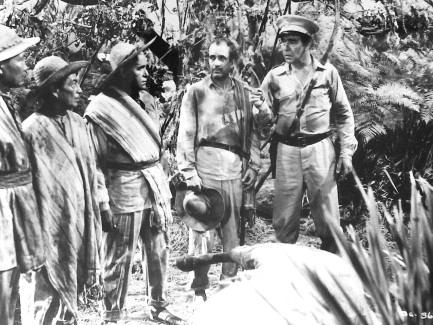
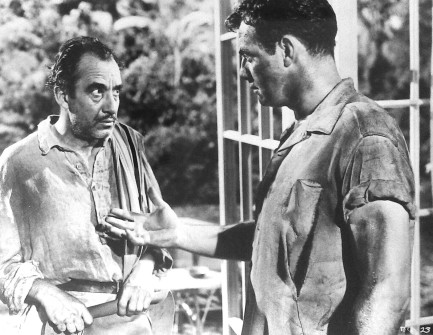
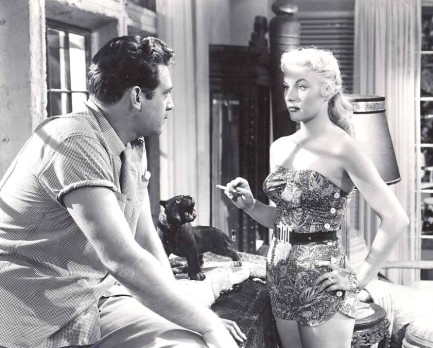
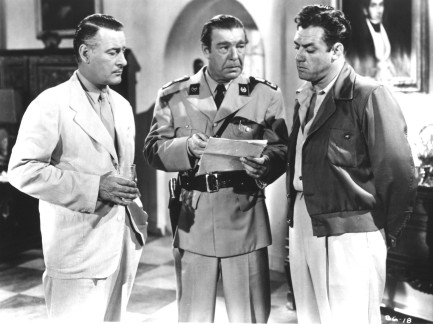
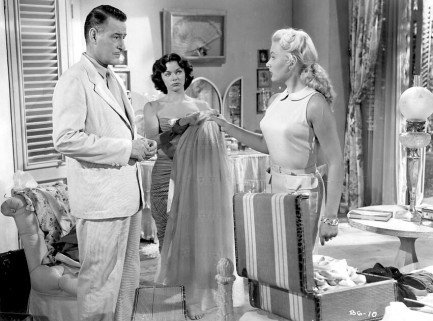
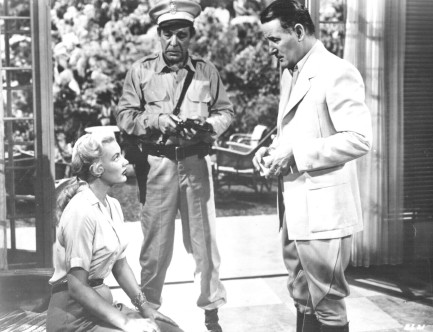
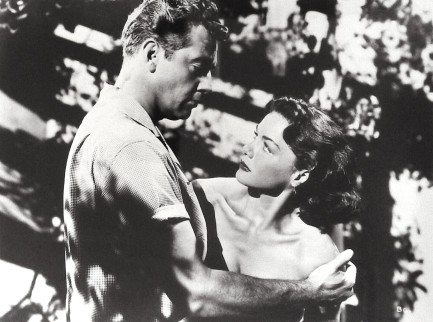
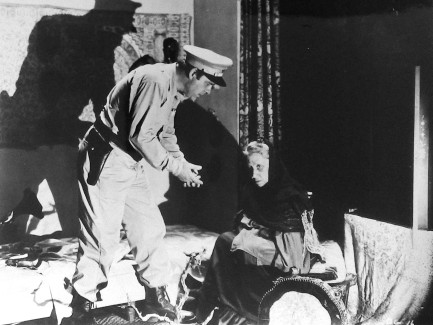
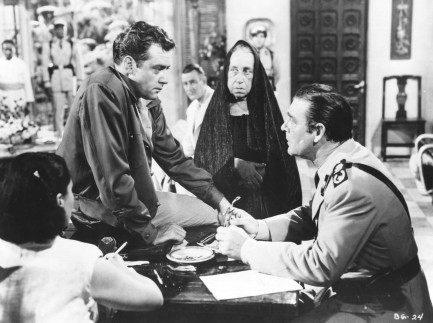

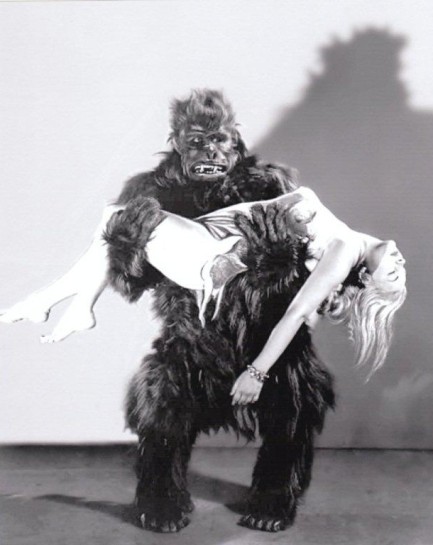
| Vintage Pulp | Feb 11 2024 |

Everything out there wants to kill you—including the people.
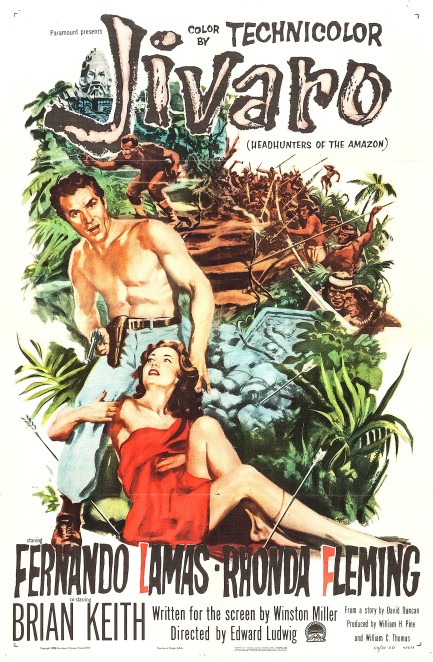
We've shown you many magazines and books on the subject of headhunters (check here and here for our absolute favorites). Mid-century interest in the subject made its way to the silver screen more than once, in this case with Jivaro, which premiered today in 1954. The title references hunter-gatherer cultures centered in the northwestern Amazon rainforest across Ecuador and Peru who shrank human heads for ceremonial reasons. The movie was a 3-D production, a fact that becomes apparent as pottery, chairs, spears, and occasional flaming arrows fly toward the camera, and it was shot in Technicolor. For those reasons, we wouldn't call it a b-movie exactly, but it still could have used a boost in budget.
Fernando Lamas plays a rough and tumble trader who plies the Amazon River in a rat trap boat. This is a rough gig. People are mean as hell down there. Even the local priest knows martial arts. Lamas agrees to conduct hot redhead Rhonda Fleming to meet her fiancée, who has ventured far from the nearest trading post in search of gold. She's fresh from California and has no idea her man has turned into a drunk and is canoodling with a local girl played by Rita Moreno.
Fleming's fiancée goes incommunicado, and eventually Lamas decides to trek into the forbidden Valley of the Winds (cue wind machine and sound effects) in order to find him. There isn't much upside to this quest, but something has developed between Lamas and Fleming, and if they don't know whether her fiancée is dead or alive, he'll always stand between them. Or something like that. They head into the wilds, endure struggles that will look familiar to fans of Raiders of the Lost Ark, and in due time find answers to all their questions, if perfunctorily.
For us, the movie raised new ones, such as where was the screenwriter during all this? Lost in the jungle too, we guess. But we can't say Jivaro is bad. While shot entirely in Hollywood with second unit footage from South America added to fill in the margins, it's actually somewhat convincing in its setting. And Fleming is good, though with her red hair we can't believe the Jivaro we able to miss her with so many arrows. But that's film tradition for you—even today, using better weapons, villains still have terrible aim. If you aim to watch Jivaro, we recommend drinking some firewater to make it a more entertaining diversion, and keeping your expectations in reasonable territory.

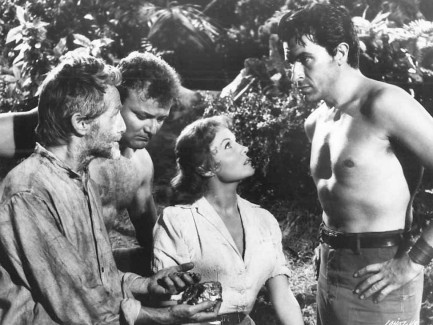
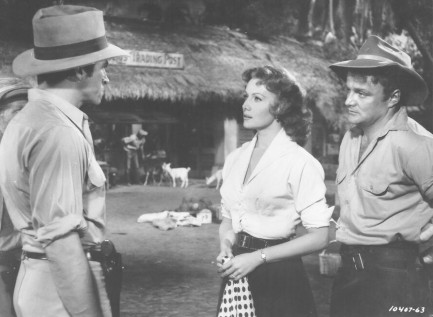
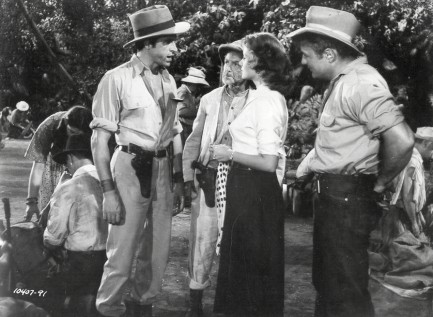
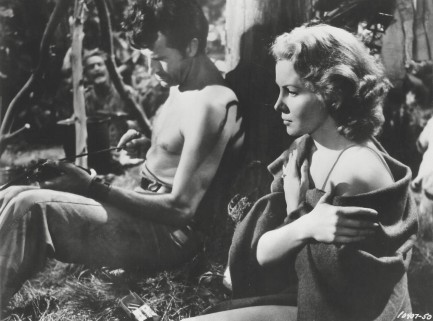
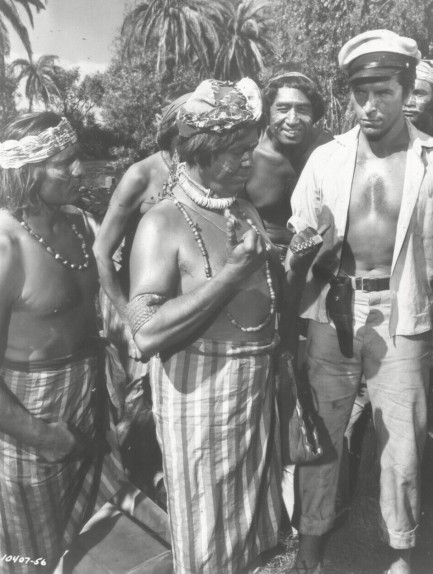
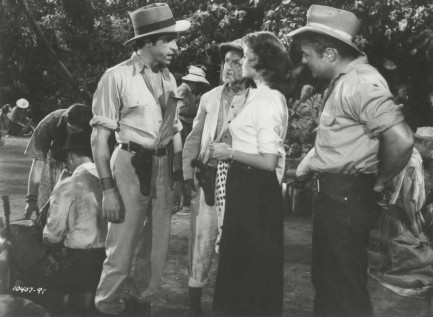
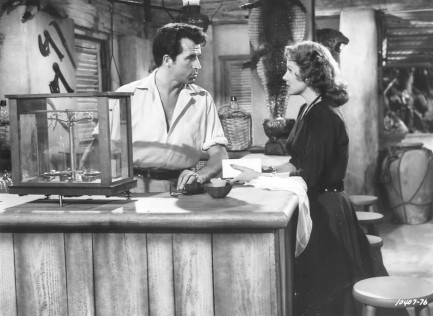
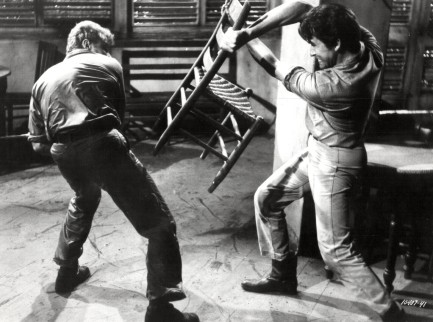
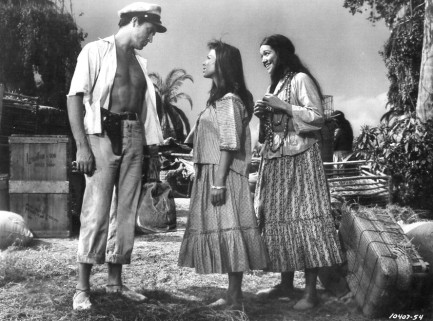
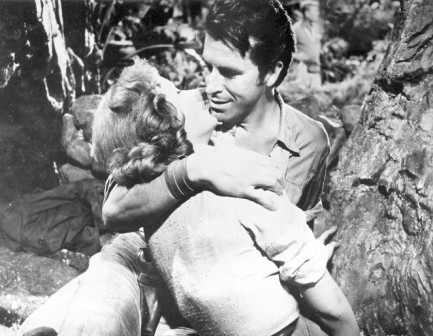
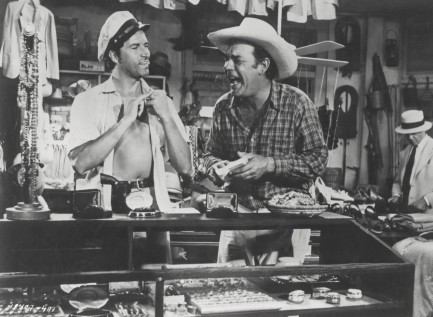
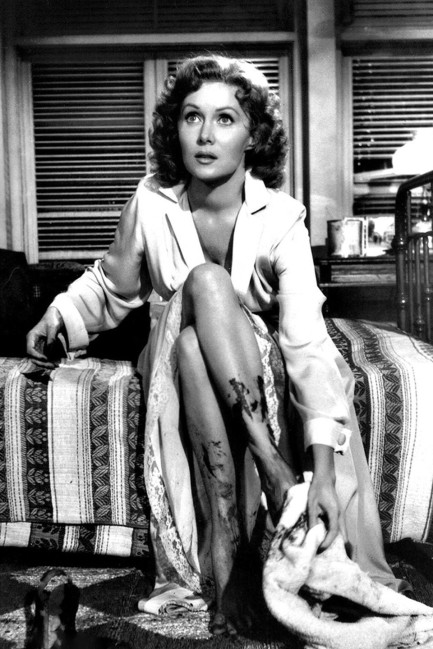
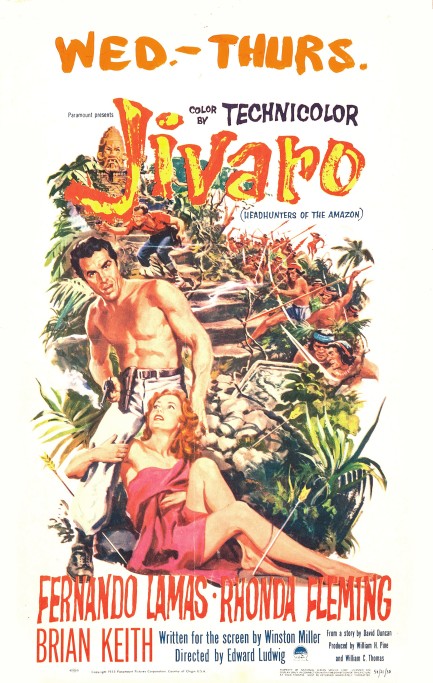
| Vintage Pulp | Mar 3 2021 |

Stuck between the cops and a hard place.
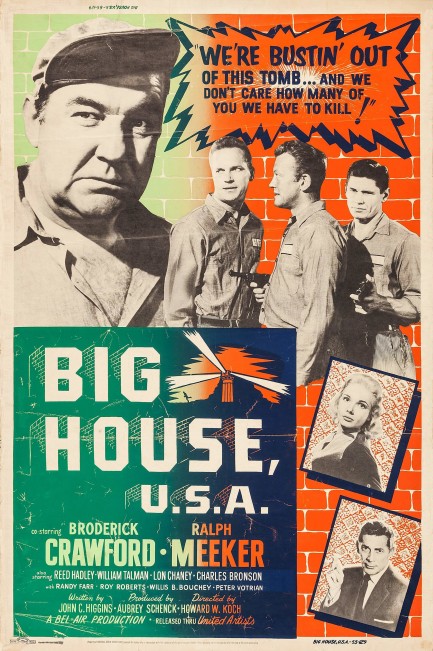
This poster was made to promote the drama Big House, U.S.A., which premiered today in 1955, and starred Ralph Meeker, who later headlined the classic film noir Kiss Me Deadly. He also starred in one of our favorite unknown films of all time, the television production Birds of Prey, which we may talk about at a later date. Big House is basically a procedural crime drama about how the cops try to break down a kidnapper and suspected murderer played by Meeker. His character is nicknamed Ice Man because he's cool under pressure. True to form the cops can't wring a confession from him, so he's sent to prison for lesser crimes and will be released in a short while.
Ice Man thinks he's got it made. Serve easy time, earn a quick parole, then quietly retrieve the heist loot waiting for him on the outside. But cons read the news too, and several decide they want his cash. They plan an escape, and they're going to drag Ice Man along against his will or kill him for refusing. And naturally, they have no intention of letting him survive handing over the money. What a pickle. Die now or die later. But once he's on the outside maybe—just maybe—there's a chance he can turn the tables on these con-conspirators.
Big House, U.S.A. is set in Denver and the surrounding Colorado countryside, and features some nice exteriors, but it's strictly a b-movie—poorly staged, cheesily scripted, and stuck together with baling wire and chewing gum. We mentioned Meeker's starring role in Kiss Me Deadly. That came out only a month after this movie, so it was a nice recovery for him. A couple of other notes of interest in Big House are that you get to see a young and fit Charles Bronson flashing his biceps—certainly a draw for some—and the legendary Lon Chaney, Jr. gets a role as a grizzled prison inmate. The overall result is certainly watchable, but there are better prison dramas out there, and hundreds of better vintage crime flicks.
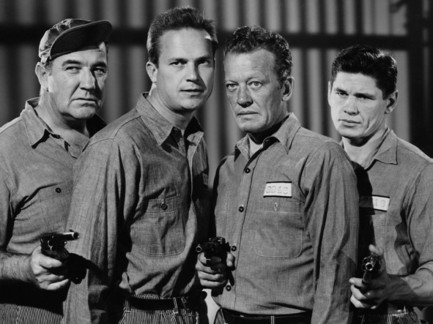 After we bust outta this joint, what do you say we form a boy band? Charles knows three guitar chords and I can sing.
After we bust outta this joint, what do you say we form a boy band? Charles knows three guitar chords and I can sing.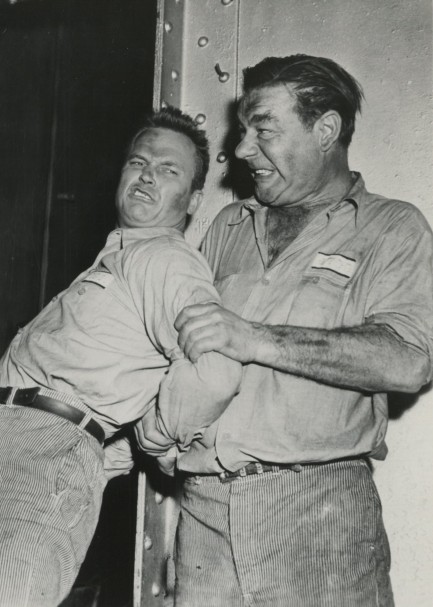 What are you mad at me for? Is it my fault the babes like singers best?
What are you mad at me for? Is it my fault the babes like singers best?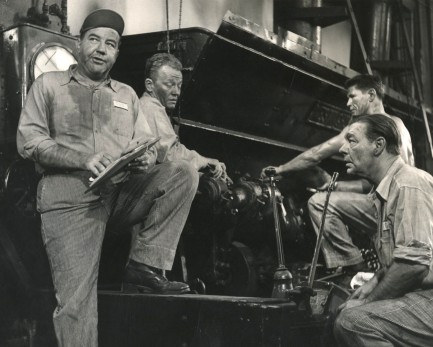 Fuck this. Between Meeker and Bronson I'm getting no action at all. I'm starting a solo career. I heard there's a thing called Auto-Tune that'll keep even my singing voice in pitch.
Fuck this. Between Meeker and Bronson I'm getting no action at all. I'm starting a solo career. I heard there's a thing called Auto-Tune that'll keep even my singing voice in pitch.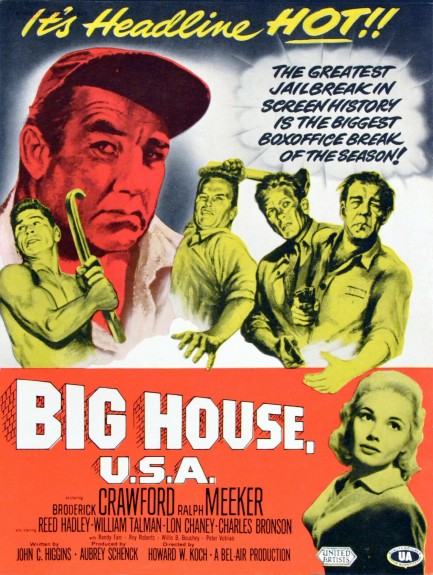
| Vintage Pulp | Oct 23 2019 |

Original comedy-thriller concept wrapped in favor of something darker.
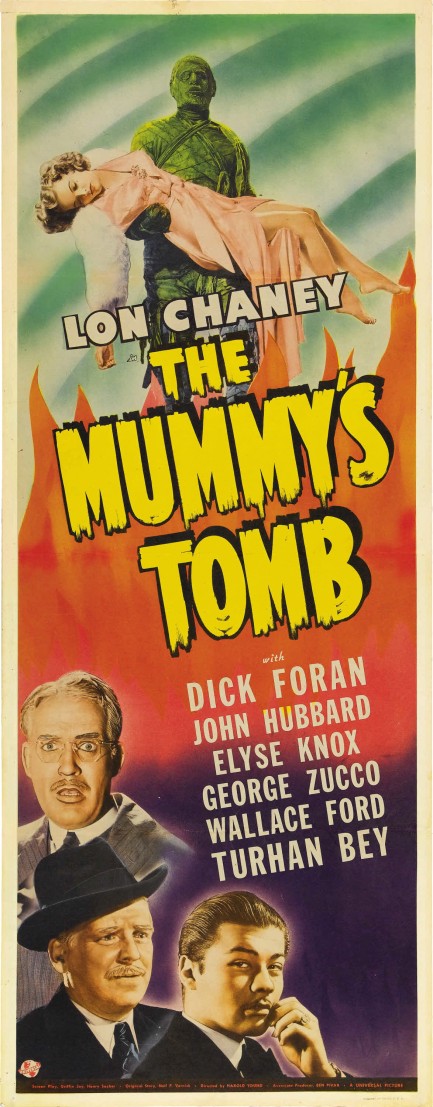
When we stumbled across The Mummy's Hand a while back, we were amused and charmed by the film. So naturally we went straight for the follow-up, The Mummy's Tomb, for which you a promo poster above. Sadly, this movie proves that Hollywood has always been terrible with sequels. The humor and charm of Hand is gone. Instead the filmmakers go for straight horror, having disposed of two of the four main characters from Hand before the story even opens, and rudely dispatching the other two after minimal participation. Were there contract troubles? Scheduling difficulties? Did the stars demand raises? If so, the mummy took care of the negotiations by killing the offending parties, but along the way the movie got embalmed. And we were so looking forward to seeing the original characters from The Mummy's Hand in a series of light thrillers. No such luck. Our guess—unsupported by any evidence—is that because Lon Chaney, Jr. was a breakout star and had been brought aboard for this film, the suits decided make the mummy central rather than ancillary, as he had been in Hand. Chaney's Mummy entries were successful, but most reviews rate the Chaneyless original as the best of the group. We agree. The Mummy's Tomb premiered in the U.S. today in 1942.
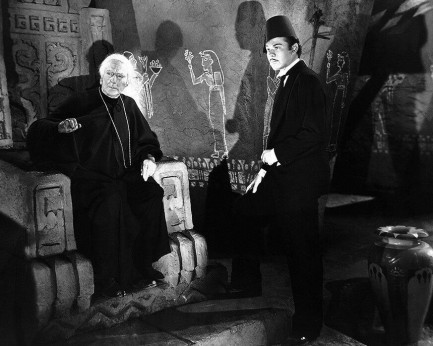
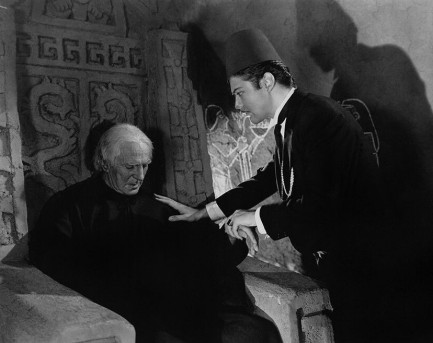
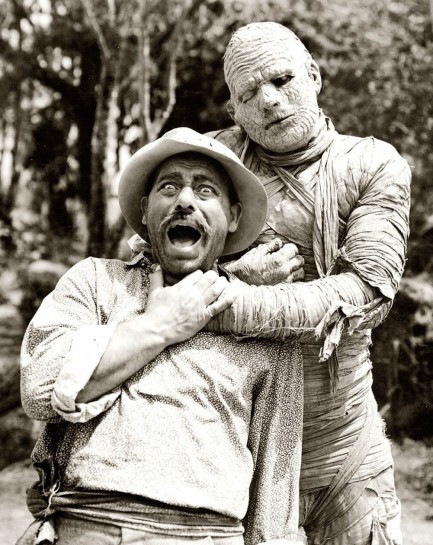
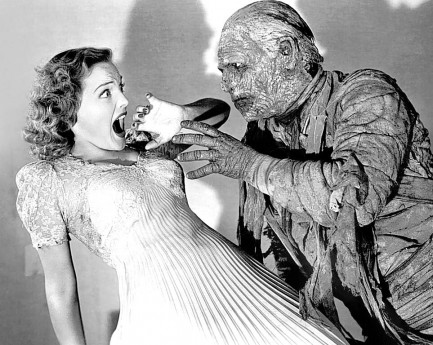
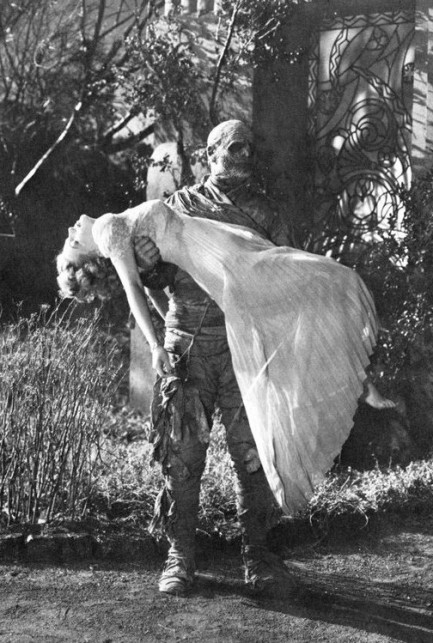
| Vintage Pulp | Dec 8 2017 |

The film stars a Barker—and that's also a good description of this dog.
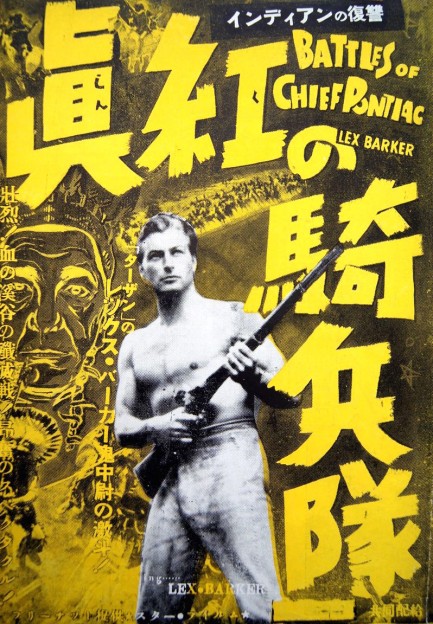
This poster, which you will see when you scroll down is two sided, folded into four panels, was made for Battles of Chief Pontiac, a film starring Lex Barker in a story of war between the French and British over what is now the vicinity of Detroit, Michigan. Within this larger fight, Ottawa tribes mount a resistance against the occupying British and their German, or Hessian, mercenaries. This resistance is seriously hampered after the Ottawa are suckered into a peace parlay, then deliberately given blankets infected with smallpox. Treachery much, paleface? Why, yes, all the time.
Throughout all the battles and betrayals hero Lex Barker—the only noble white character—speaks in a neutral American accent that didn't exist 200 years ago, while the supporting white players do their best evil nazi and pompous Brit dialects. This is a nice little trick, portraying all the bad guys as essentially foreign. Never mind that the U.S. is made up of descendents of those colonists, and Barker's character is a colonist too. In cinematic terms it's a deft, almost subliminal job of blame shifting. That the film also showed overseas, where accents would have been lost on audiences, thus making it play more like a broad indictment of colonial expansionism, is an irony.
Throughout all the battles and betrayals hero Lex Barker—the only noble white character—speaks in a neutral American accent that didn't exist 200 years ago, while the supporting white players do their best evil nazi and pompous Brit dialects. This is a nice little trick, portraying all the bad guys as essentially foreign. Never mind that the U.S. is made up of descendents of those colonists, and Barker's character is a colonist too. In cinematic terms it's a deft, almost subliminal job of blame shifting. That the film also showed overseas, where accents would have been lost on audiences, thus making it play more like a broad indictment of colonial expansionism, is an irony.
Until we shared today's poster there was never any indication anywhere online that Battles of Chief Pontiac played in Japan, but the evidence is clear in this butterscotch promo—which is far more artistic than the film. Yes, this Barker vehicle is a total dog. Avoid it, except for its comedy potential—that is, if watching pasty white guys in brown shoe polish is funny. Battles of Chief Pontiac premiered in the U.S. today in 1952, and according to the poster, hit Japan in 1956. You see the right half of the front side, and the entire rear just below.
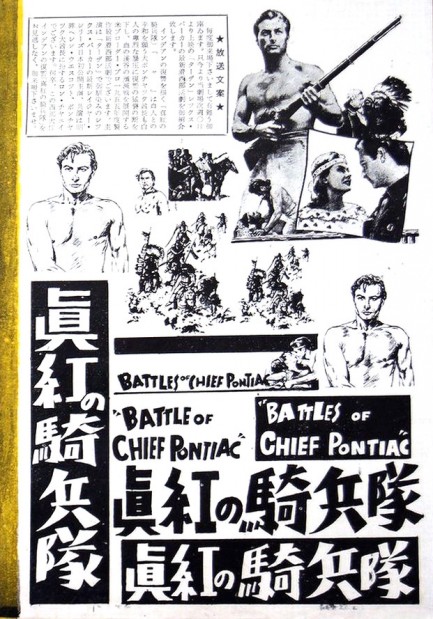
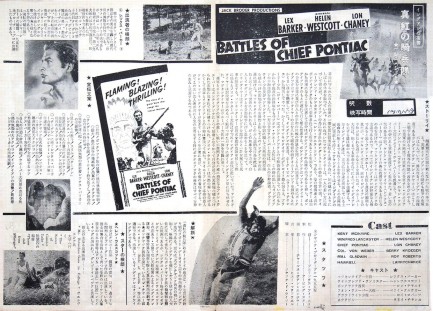
| Vintage Pulp | Nov 2 2010 |

Don’t let the sun go down on me.
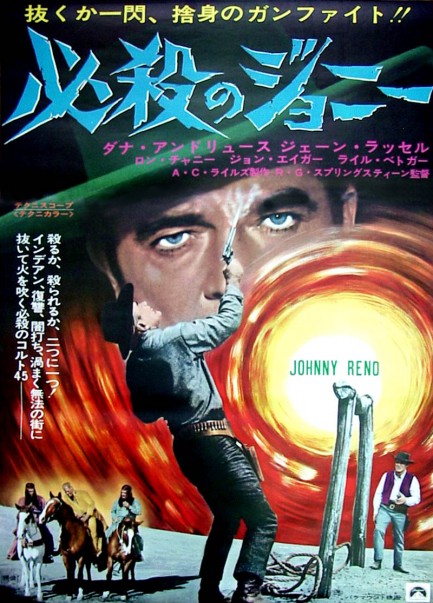
Above, a Japanese poster for the 1966 western Johnny Reno, starring Dana Andrews, Jane Russell, and Lon Chaney, Jr.




































































